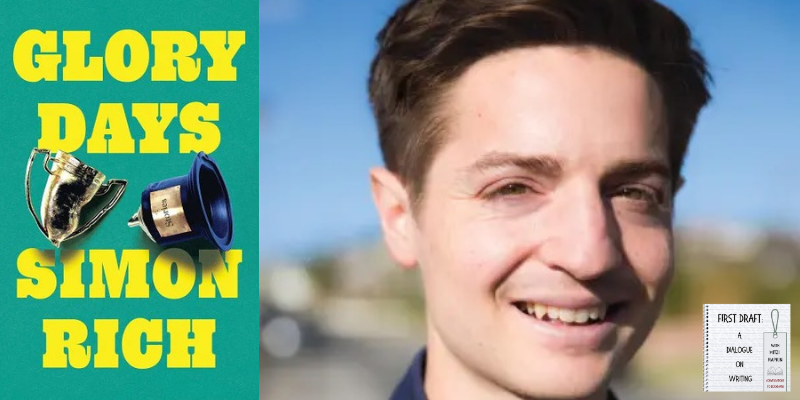First Draft: A Dialogue of Writing is a weekly show featuring in-depth interviews with fiction, nonfiction, essay writers, and poets, highlighting the voices of writers as they discuss their work, their craft, and the literary arts. Hosted by Mitzi Rapkin, First Draft celebrates creative writing and the individuals who are dedicated to bringing their carefully chosen words to print as well as the impact writers have on the world we live in.
Article continues after advertisement
In this episode, Mitzi talks to Simon Rich about his new collection, Glory Days.
Subscribe and download the episode, wherever you get your podcasts!
From the episode:
Mitzi Rapkin: Do you find that you use a different part of your brain like when you wrote for SNL, or if you’re writing film or television or for print?
Simon Rich: Not anymore. I think when I was starting out, I did a lot of what I would refer to as, like straight comedy. And then my first two collections and my work for SNL, I would put in that category where I wasn’t really focused on narrative, and I was really just trying to get laughs. And sometimes in order to get laughs, you actually want to resist narrative. You want to subvert narrative and off foot the reader or watcher. I was often agnostic towards narrative, and sometimes actually anti-narrative in my writing, in those days. For the last 15 years or so, I’ve really been story focused. I went to work for Pixar after SNL, I worked on the film Inside Out, writing for that movie. And that experience changed how I approach storytelling. And I think in the last 15 years or so, I’ve really tried to come at everything from the same kind of goal, which is, how can I just tell an emotionally arresting story that the audience wants to finish?
***
Simon Rich has written for “Saturday Night Live,” Pixar and “The Simpsons.” He is the creator and showrunner of “Man Seeking Woman” (FXX) and “Miracle Workers” which he based on his books. His other collections include Spoiled Brats and Ant Farm. He is a frequent contributor to The New Yorker. His new story collection is Glory Days.

